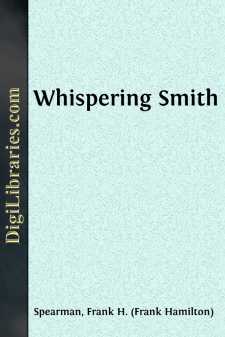Categories
- Antiques & Collectibles 13
- Architecture 36
- Art 48
- Bibles 22
- Biography & Autobiography 813
- Body, Mind & Spirit 142
- Business & Economics 28
- Children's Books 15
- Children's Fiction 12
- Computers 4
- Cooking 94
- Crafts & Hobbies 4
- Drama 346
- Education 46
- Family & Relationships 57
- Fiction 11828
- Games 19
- Gardening 17
- Health & Fitness 34
- History 1377
- House & Home 1
- Humor 147
- Juvenile Fiction 1873
- Juvenile Nonfiction 202
- Language Arts & Disciplines 88
- Law 16
- Literary Collections 686
- Literary Criticism 179
- Mathematics 13
- Medical 41
- Music 40
- Nature 179
- Non-Classifiable 1768
- Performing Arts 7
- Periodicals 1453
- Philosophy 64
- Photography 2
- Poetry 896
- Political Science 203
- Psychology 42
- Reference 154
- Religion 513
- Science 126
- Self-Help 84
- Social Science 81
- Sports & Recreation 34
- Study Aids 3
- Technology & Engineering 59
- Transportation 23
- Travel 463
- True Crime 29
Nan of Music Mountain
Description:
Excerpt
CHAPTER I
FRONTIER DAY
Lefever, if there was a table in the room, could never be got to sit on a chair; and being rotund he sat preferably sidewise on the edge of the table. One of his small feet––his feet were encased in tight, high-heeled, ill-fitting horsemen’s boots––usually rested on the floor, the other swung at the end of his stubby leg slowly in the air. This idiosyncrasy his companion, de Spain, had learned to tolerate.
But Lefever’s subdued whistle, which seemed meditative, always irritated de Spain more or less, despite his endeavor not to be irritated. It was like the low singing of a tea-kettle, which, however unobtrusive, indicates steam within. In fact, John Lefever, who was built not unlike a kettle, and whose high, shiny forehead was topped by a pompadour shock of very yellow hair, never whistled except when there was some pressure on his sensibilities.
The warm sun streaming through the windows of the private office of the division superintendent at Sleepy Cat, a railroad town lying almost within gunshot of the great continental divide, would easily have accounted for the cordial perspiration that illumined Lefever’s forehead. Not that a perspiration is easily achieved in the high country; it isn’t. None, indeed, but a physical giant, which Lefever was, could maintain so constant and visible a nervous moisture in the face of the extraordinary atmospheric evaporation of the mountain plateaus. And to de Spain, on this occasion, even the glistening beads on his companion’s forehead were annoying, for he knew that he himself was properly responsible for their presence.
De Spain, tilted back in the superintendent’s chair, sat near Lefever––Jeffries had the mountain division then––his elbows resting on the arms of the revolving-chair, and with his hands he gripped rather defiantly the spindles supporting them; his feet were crossed on the walnut rim of the shabby, cloth-topped table. In this attitude his chin lay on his soft, open collar and tie, his sunburnt lips were shut tight, and above and between his nervous brown eyes were two little, vertical furrows of perplexity and regret. He was looking at the dull-finish barrel of a new rifle, that lay across Lefever’s lap. At intervals Lefever took the rifle up and, whistling softly, examined with care a fracture of the lever, the broken thumb-piece of which lay on the table between the two men.
From the Main Street side of the large room came the hooting and clattering of a Frontier Day celebration, and these noises seemed not to allay the discomfort apparent on the faces of the two men.
“It certainly is warm,” observed Lefever, apropos of nothing at all.
“Why don’t you get out of the sun?” suggested de Spain shortly.
Lefever made a face. “I am trying to keep away from that noise.”
“Hang it, John,” blurted out de Spain peevishly, “what possessed you to send for me to do the shooting, anyway?”
His companion answered gently––Lefever’s patience was noted even among contained men––“Henry,” he remonstrated, “I sent for you because I thought you could shoot.”
De Spain’s expression did not change under the reproach....






